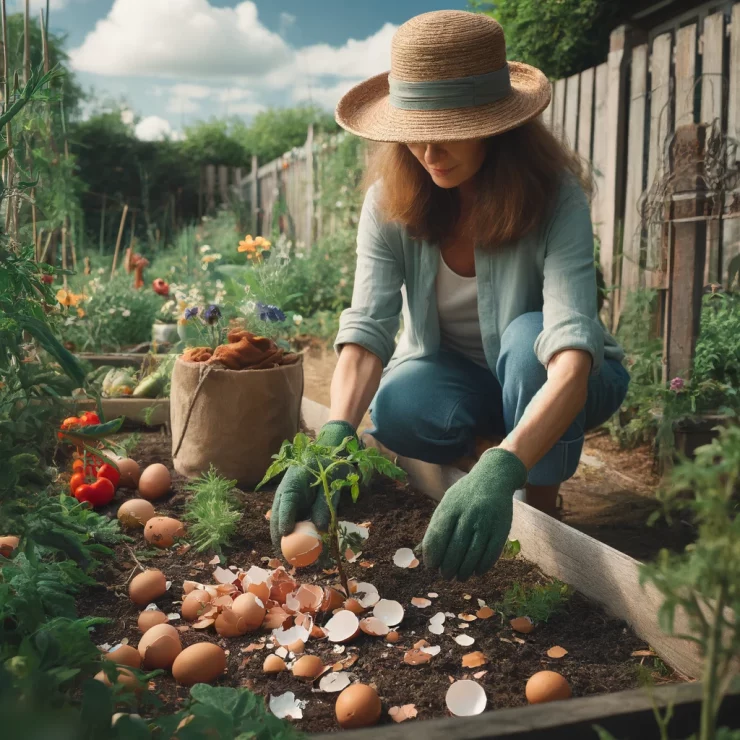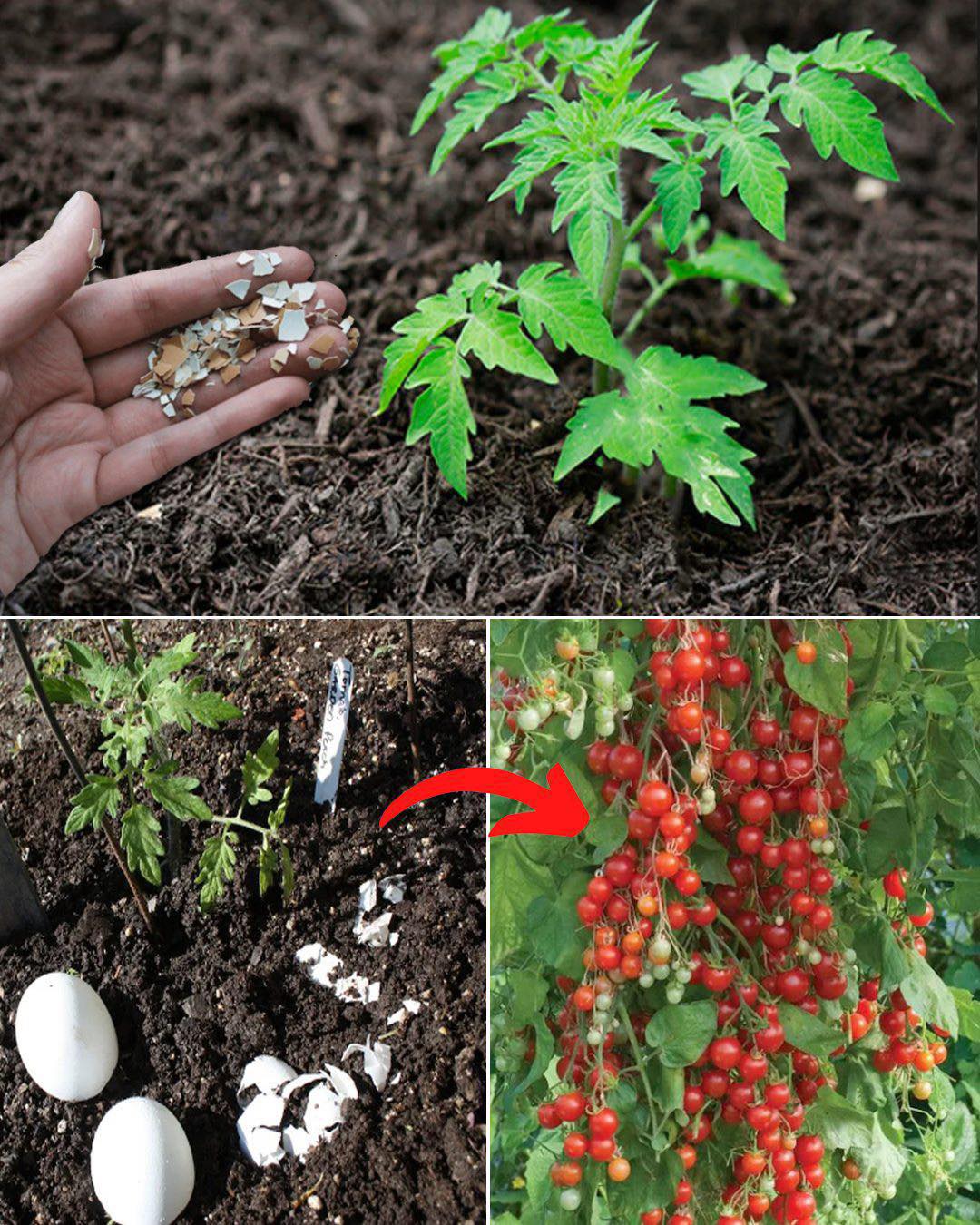Eggshells are often overlooked and discarded as waste after we’ve enjoyed our omelets or scrambled eggs. However, what many don’t realize is that these seemingly mundane remnants can actually serve as valuable resources in the garden. Rich in calcium and other essential minerals, eggshells can work wonders when incorporated into soil or used in various gardening practices.

Enhancing Soil Health
Calcium is a crucial nutrient for plant growth, aiding in cell formation, enzyme activity, and overall plant structure. Eggshells are primarily composed of calcium carbonate, which slowly breaks down in the soil, releasing calcium and other trace minerals over time. This gradual release provides a sustainable source of nutrients for plants, helping to maintain soil fertility and pH balance.
Natural Pest Control
Crushed eggshells can act as a deterrent for certain garden pests, such as slugs, snails, and even some crawling insects. The sharp edges of the crushed shells create a barrier that these pests are reluctant to cross, protecting vulnerable plants from damage. Additionally, the calcium content in eggshells can help deter blossom end rot in tomatoes and peppers, a common problem caused by calcium deficiency.

Seed Starting
Eggshells can be repurposed as biodegradable seed starters, providing a nutrient-rich environment for seedlings to germinate and grow. Simply clean and sterilize empty eggshells by rinsing them with water and allowing them to dry. Then, fill each half-shell with potting soil and plant seeds according to the instructions. Once the seedlings have outgrown their shells, they can be transplanted directly into the garden, shell and all, reducing transplant shock and minimizing waste.
Composting
Eggshells are an excellent addition to compost bins or piles, contributing valuable nutrients to the organic matter that will eventually enrich the soil. To facilitate decomposition, crush the eggshells into small pieces before adding them to the compost. Over time, they will break down along with other organic materials, creating nutrient-rich compost that can be used to fertilize plants and improve soil structure.
How to Use Eggshells in the Garden
Crushed Eggshells: Crushed eggshells can be sprinkled directly onto the soil around plants to provide a slow-release source of calcium. For best results, crush the shells into small pieces to accelerate decomposition.
Seed Starting: Use clean, empty eggshells as biodegradable containers for starting seeds. Once the seedlings have sprouted, transplant them, shell and all, into the garden.
Natural Pest Control: Create a barrier around plants by scattering crushed eggshells to deter slugs, snails, and crawling insects.
Composting: Add crushed eggshells to compost bins or piles to enrich the compost with calcium and other essential minerals.
Before tossing those eggshells into the trash, consider their potential benefits in the garden. From enhancing soil health to providing natural pest control and serving as biodegradable seed starters, eggshells offer a range of practical uses for the savvy gardener. By recycling this kitchen waste, we not only reduce landfill burden but also contribute to the sustainability and productivity of our gardens. So, the next time you crack an egg for breakfast, remember: don’t throw away those eggshells – plant them in the garden and watch as they work wonders.
News
JJ Redick reacts to Luka Doncic trade for Anthony Davis
In one of the most jaw-dropping moves of the season, the NBA landscape was rocked by the blockbuster trade involving Luka Dončić and Anthony Davis—a swap that has sent ripples of excitement, disbelief, and heated discussion through the league. Among…
Anthony Davis FULL reaction to trade to Mavericks for Luka Doncic
In a blockbuster move that sent shockwaves through the NBA and left fans reeling, Anthony Davis has been traded to the Dallas Mavericks in exchange for Luka Dončić. In the immediate aftermath of the news, Davis took to the media…
Shaq reacts to Dallas Mavericks wanting Kevin Durant after Luka-AD trade 👀
In the constantly shifting world of the NBA, trade rumors and blockbuster moves are a regular part of the season’s drama. The latest twist has fans buzzing: the Dallas Mavericks have reportedly set their sights on acquiring Kevin Durant in…
Donovan Mitchell FILTHY poster dunk on Kristaps Porzingis 😳
In a game filled with high-intensity moments and jaw-dropping highlights, one play in particular has left fans and analysts buzzing about Donovan Mitchell’s latest display of athleticism. Early in the contest, with the atmosphere already charged by an evenly matched…
Joel Embiid hits go-ahead bucket vs Mavs then chats with Anthony Davis after game
In one of the most thrilling contests of the season, Joel Embiid delivered a clutch performance against the Dallas Mavericks, punctuating the game with a go-ahead bucket that sent the home crowd into a frenzy. The atmosphere in the arena…
D’Angelo Russell game winner as Nets hit two 3’s in 3 seconds to win vs Rockets 😱
In one of the most electrifying moments in recent NBA history, D’Angelo Russell delivered an unforgettable game-winner that left fans and commentators in complete awe. With the Brooklyn Nets locked in a tense battle against the Houston Rockets, the outcome…
End of content
No more pages to load











